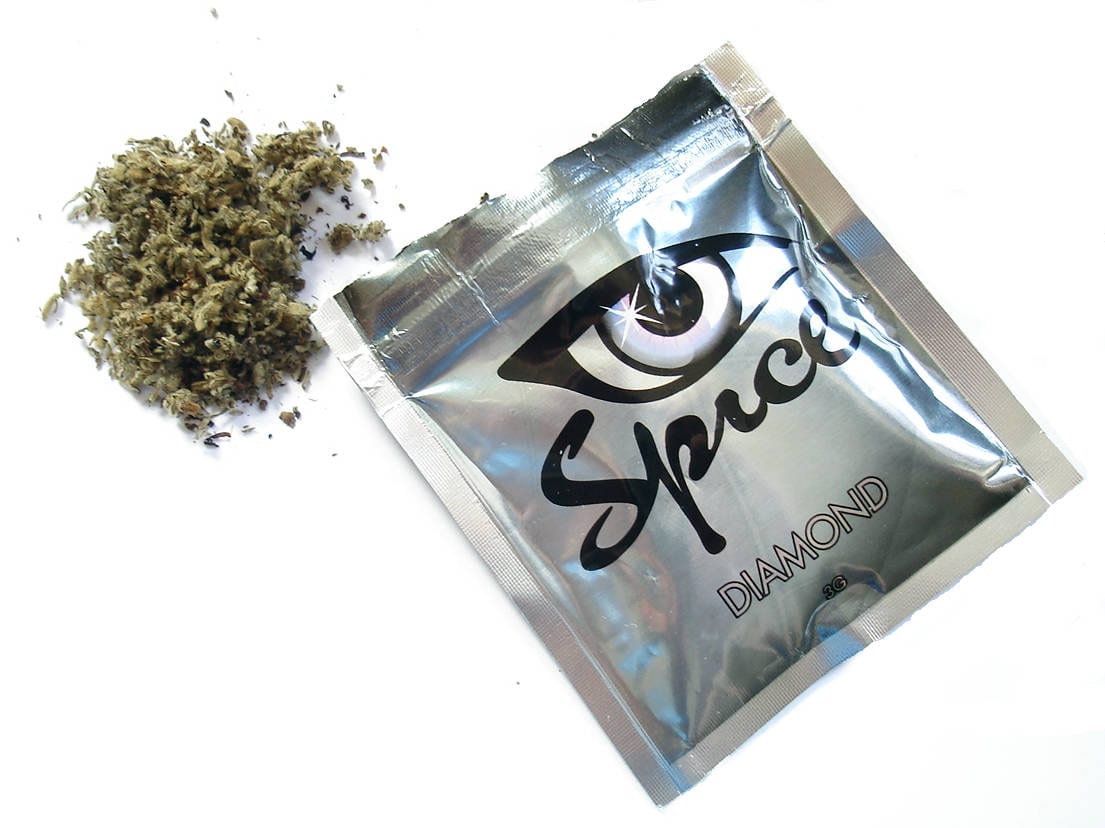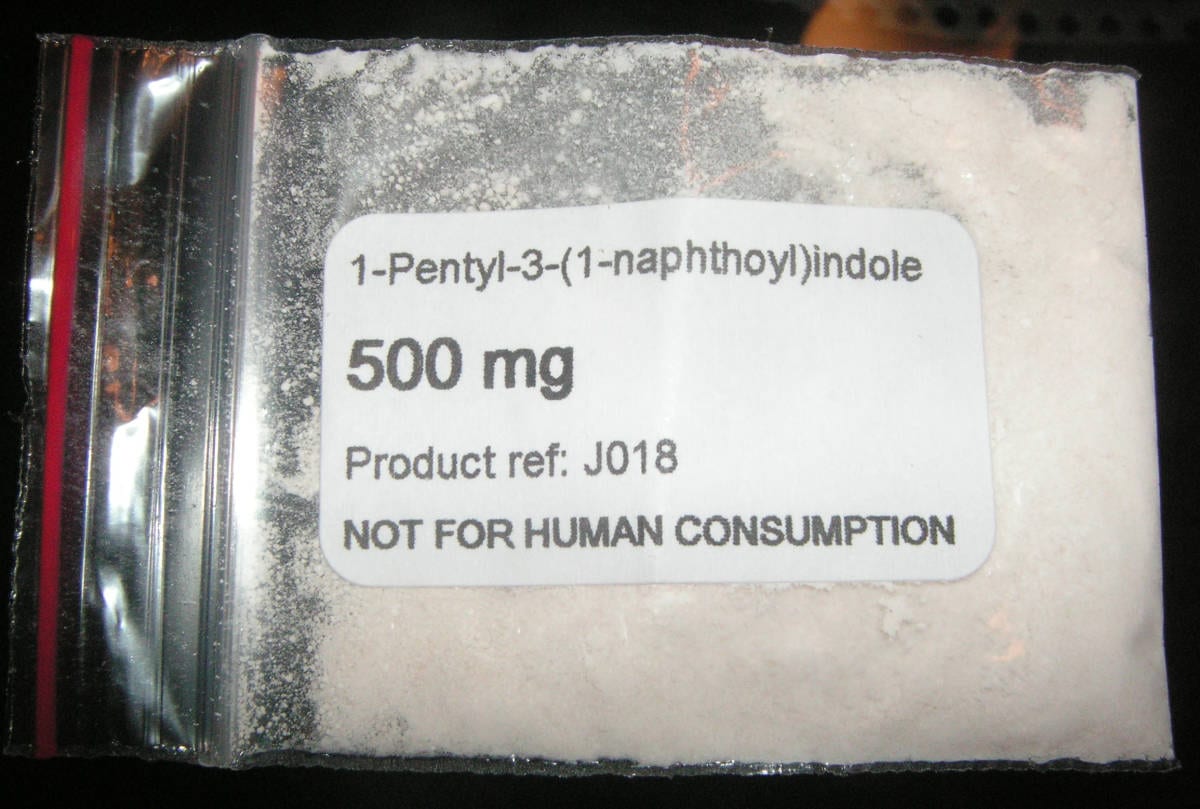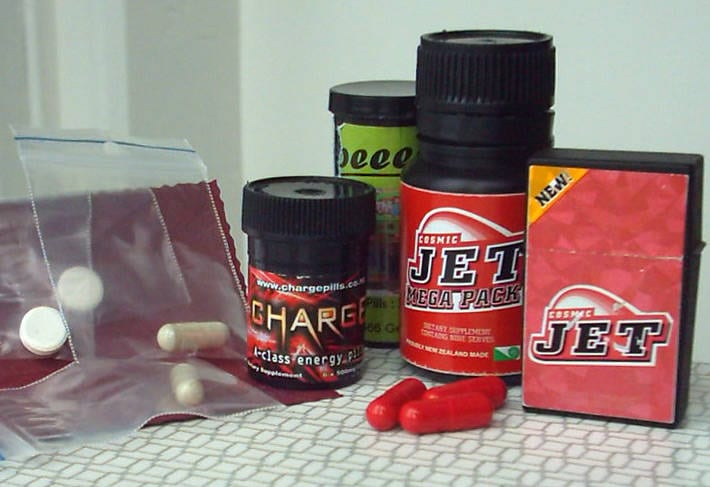
Law enforcement agencies nationwide are confronting an increasingly prevalent threat: a flood of cheap new synthetic drugs from overseas.
They’re generally ordered online, arrive by international mail, and are delivered to buyers in the United States by the U.S. Postal Service. Frighteningly, they’re breaching our shores undetected, and largely uninspected, by federal customs authorities.
This security hole must be fixed. Failing to screen packages from foreign postal services threatens public safety and the economy. If U.S. law enforcement is unable to stem the flow of these harmful new drugs, the risks they pose will grow.
 Synthetic drugs threaten public safety; they can trigger unpredictable, violent behavior and are susceptible to overdosing, but they dodge anti-drug laws with constantly changing chemical structures.
Synthetic drugs threaten public safety; they can trigger unpredictable, violent behavior and are susceptible to overdosing, but they dodge anti-drug laws with constantly changing chemical structures.
Police departments in many communities are struggling to combat these drugs, which are often sold at corner markets in shiny packets labeled with names like Bizarro, Trainwreck, and K2. Synthetic cannabinoids are now the second-most abused drug by American teenagers, trailing only conventional marijuana.
Abuse of synthetic drugs has serious consequences. Between 2014 and 2015, the number of calls to poison control centers related to these synthetics more than tripled. Bath salts, another type of synthetic drug that has surged in popularity, were responsible for nearly 23,000 hospital visits in 2013.
Earlier this year, 18 people in South Florida were killed by one batch of a synthetic compound called “flakka.” Other recent incidents, arrests, and even deaths from overdoses of synthetic drugs have been reported in Florida, Georgia, Louisiana, Maine, Michigan, Mississippi, New York, North Carolina, and Tennessee.
 In each of these cases, the drugs had been received from outside the country via U.S. mail.
In each of these cases, the drugs had been received from outside the country via U.S. mail.
Foreign drug producers rely on international mail to deliver their wares, because they know American authorities won’t inspect their packages.
Private express carriers must submit security data on their foreign shipments to U.S. Customs. Many federal agencies rely on this information to identify potentially high-risk packages before they reach American shores.
Foreign postal systems are not being required to provide such data. And they don’t offer it voluntarily. Without it, U.S. Customs and Border Protection has little idea whether a package from a foreign post is harmless or contains dangerous contraband. About 179 million non-letter packages enter the United States every year by mail.
Criminal enterprises aren’t just sending illegal drugs. They’re also flooding the market with counterfeit pharmaceuticals. A recent study by LegitScript, a company that verifies online pharmacies, found that all 29 of the illegal online pharmacies it examined relied on foreign postal operators to present their packages for delivery in the United States.

Lax monitoring of foreign postal packages also saps our nation’s finances. According to a new study conducted by Copenhagen Economics, foreign posts don’t submit customs declarations to U.S. Customs and Border Protection, robbing American taxpayers of over $1 billion annually in unpaid fees.
Researchers looked at 104 packages sent by 10 different foreign posts. None submitted advanced customs forms, even though they’re legally required to if the contents of a package are worth over $200.
Federal officials are finally starting to respond to the safety risk. An audit last month by the U.S. Postal Service’s Inspector General expressed concern that large numbers of international packages were going straight into the domestic mail stream without being presented for required customs inspection.
With e-commerce from online shopping growing every year, the U.S. Postal Service is preparing for even greater volumes of international packages. Federal officials must ensure that foreign drug dealers don’t contribute to that growth.
Don Soifer is executive vice president of the Lexington Institute.



